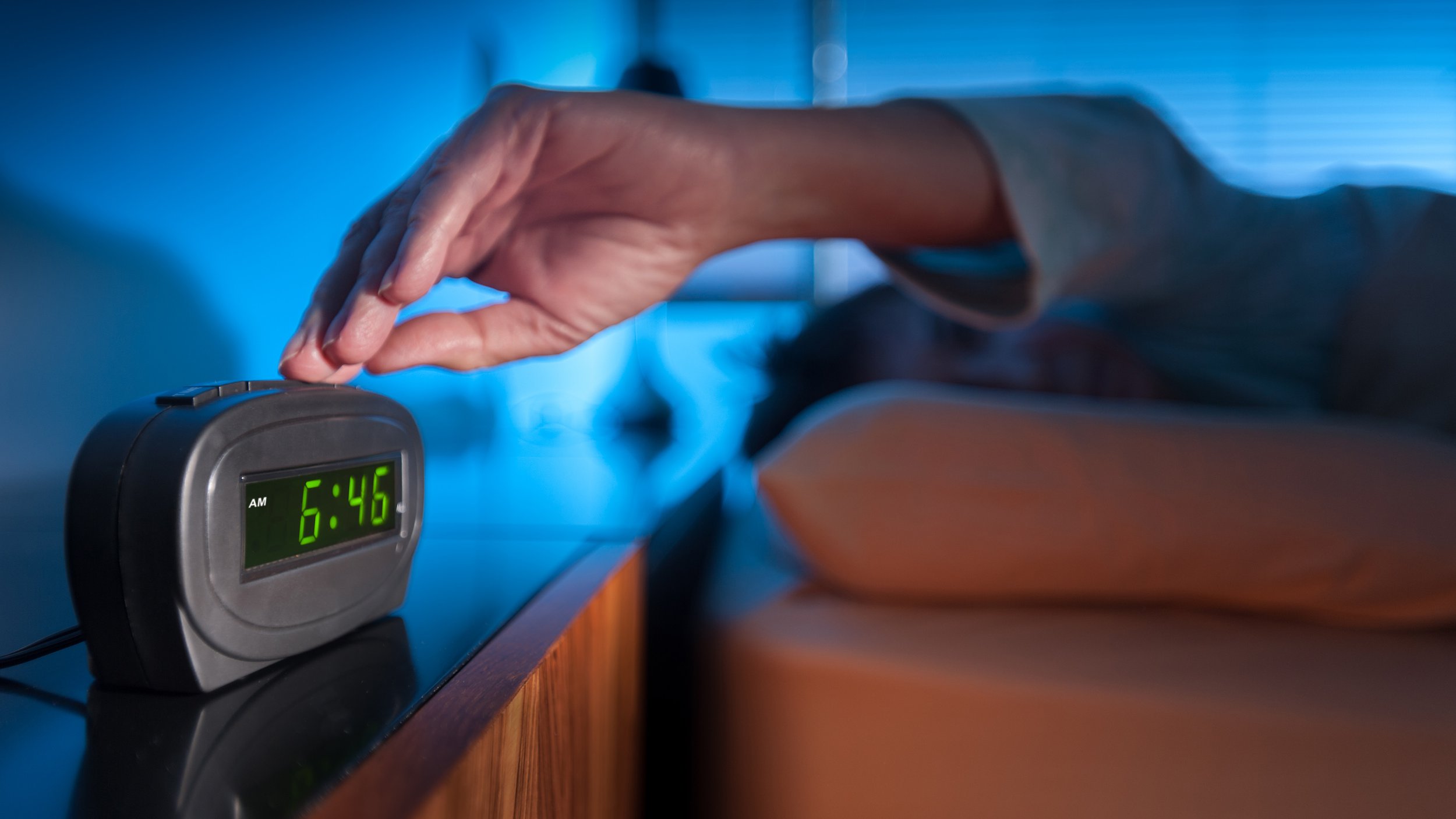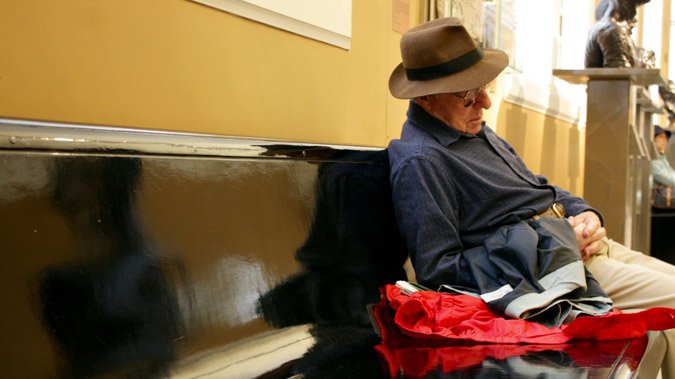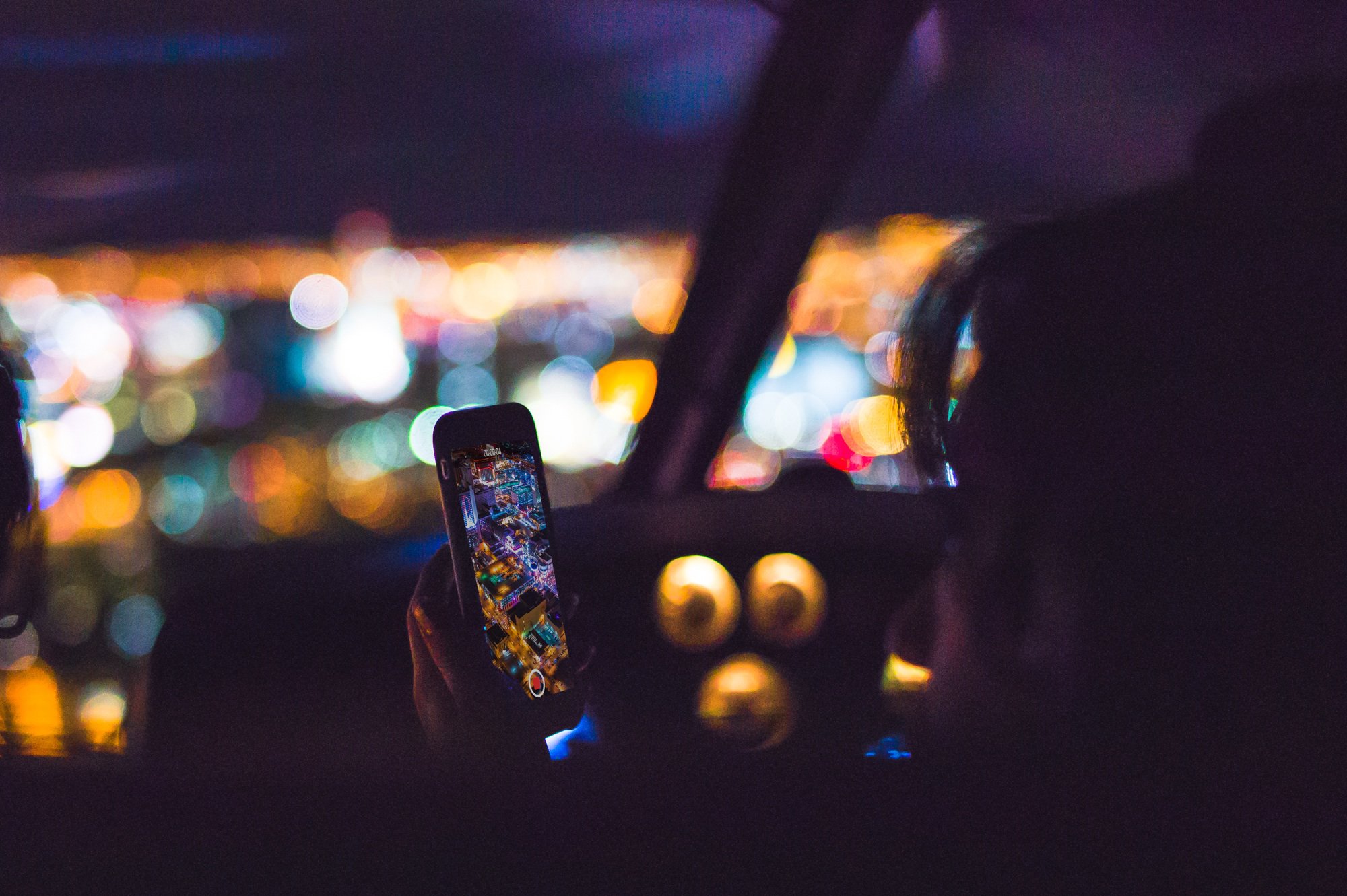Not A Morning Person? There Might Be 350 Reasons Buried in Your Genome.
If you’re more of a night owl, you might be more likely to suffer from mental health issues.

Constantly reaching for the snooze button might be a familiar struggle. Our preferences for being morning or evening people seem to be deeply embedded in our genes—but work culture, especially in the United States and United Kingdom, might cater better to early birds. Image Credit: Maudib, iStock
If no combination of alarm clocks, caffeine, and sunrise SoulCycle classes gets you bright-eyed and bushy-tailed in the a.m., you might have your genes to blame—at least, in part.
According to a study published today in Nature Communications, over 350 regions in the human genome are linked to being an early bird. The analysis, which pulls data from nearly 700,000 individuals enrolled in either the UK Biobank or with the personal genomics company 23andMe, suggests that morning people might be less likely to suffer from mental health issues.
Not all of the 351 regions identified are new. Twenty-four of them had already been unveiled in previous studies with the same objective, but the most recent report is the largest to date, says Youna Hu, a computational scientist who led one such study in 2016, but was not involved in the new research. “This verifies previous work, and also adds more biology to this very interesting and important field of study,” she says.
Now, hundreds of genes join the increasingly complex tapestry of human circadian rhythms, which govern our cycles of alertness and drowsiness throughout the day. Among the biggest potential contributors are genes that affect several regions of the brain, including those that control hormone production, and the retina of the eye.

The sight of sunrise might be more welcome to some people than others—and part of the reason could be embedded in our genomes. Image Credit: mhx, flickr
Additionally, unlike its predecessors, this new report incorporates findings from over 85,000 study participants who wore wrist monitors that, over the course of a week, continuously measured several metrics of health, including sleep habits. Most studies that mine the human genome for these types of genetic signatures rely only on individuals filling out surveys about their lifestyle—including if they self-identify as “morning” or “evening” people—and comparing their responses with the information contained within their DNA. Humans aren’t always truthful when describing their own behavior, but it’s much harder to be dishonest with a 24-hour activity tracker.
“People don’t always have accurate pictures of themselves,” says Rebecca Fine, a computational genetics researcher at Harvard University who was not involved in the study. “But this study had a parallel way of validating its methods.”
These more in-depth measurements revealed that individuals with the most early-bird-like genetic profiles tended to go to bed and wake up earlier than their most night-owl-like counterparts. The difference, however, wasn’t all that big: just 25 minutes.
“When I first saw it, I thought it was a little disappointing,” says study author Michael Weedon, a geneticist at the University of Exeter in the United Kingdom. “But that’s just the way it is with these complex traits.”
It’s possible that the regions of the genome identified in the study don’t fully encapsulate “morningness,” Weedon says.
Or maybe the modesty of that number has to do with the population at hand. UK Biobank participants are all between 40 and 69 years old. At these ages, sleep habits don’t tend to vary as much as they do in youth, says Olivia Walch, an applied mathematician who studies sleep and circadian rhythms, but was not involved in the study.
It might also be that genes just aren’t playing that big a role in dictating when we feel like sleeping, says Martha Merrow, a sleep researcher at Ludwig Maximilians University of Munich’s Institute of Medical Psychology who was not involved in the study. Every day, each individual’s internal clock is bombarded with countless environmental factors, and everything from a person’s age or diet to the latitude at which they live can affect how groggy they tend to feel in the wee hours of the morning. And, of course, sleeping habits are malleable. This sort of flexibility is what helps us recover from jet lag, or move across the country—and what can keep us up late at night when we stare at our phones.
At the same time, “it’s the right thing to do, to get these collections of genes together,” Merrow says. The internal clock might sound simple, but in a living creature, it’s far more complex than even the priciest Swiss quartz—and researchers are still only beginning to understand the multitude of factors involved in circadian rhythms, and how they might affect other aspects of wellbeing.
The new study highlights one such connection: Night owls might be at a slightly higher risk of suffering from schizophrenia, depression, and lower general mental wellbeing. The reasons behind this pattern are still unclear, but it’s not very surprising, Fine says. In the nine-to-five culture of the United States and United Kingdom, “there are very few night people who actually live as night people,” explains Fine, who identifies as an night owl (a claim that’s backed up by her own 23andMe data). “It’s hard to be an evening person in this society.”

Our sleeping habits shift with age. While little kids often find it easy to jolt out of bed first thing in the morning, some of the most night-owlish periods occur in the teens and twenties, before tapering off in middle age. Image Credit: Brandon Atkinson, flickr
Another result that Weedon expected, however, to see was absent entirely: a link between being an evening person and an increased risk of obesity or type 2 diabetes. Previous studies have hinted at the idea that night owls might be less healthy in several respects, including having a higher BMI or suffering from more metabolic disorders. In the newest study, however, late sleepers fared just fine—at least, in this respect.
But it’s still possible that weight gain and problems with metabolism are still tied to sleep patterns in a different way, Weedon says. Rather than being risks for all night owls, these symptoms might instead be most prominent in people whose natural sleep preferences are misaligned with their actual schedules—like late sleepers who are forced to be in the office by 9 a.m. And the same might hold true for early birds who need to take the occasional night shift.
“This is just one piece of evidence that suggests there isn’t a direct, causal link we thought might exist,” Fine adds. “But it doesn’t put the nail in the coffin.”
And, despite its size, the study as a whole comes with caveats. For instance, its results can’t be applied to the general population. When selecting data to analyze, the researchers focused their attention on only those participants with white, European ancestry, and only looked at individuals recruited from the United States and United Kingdom. Across the world, cultures, lifestyles, and genetic backgrounds are bound to differ—and such diversity will affect connections between sleep habits and other aspects of health, says study author Jacqueline Lane, a human geneticist at Massachusetts General Hospital.
“Genetic studies need to expand the backgrounds that they’re looking at,” she says. “We need better diversity and better representation.” This is especially the case, she adds, when a person’s local environment can strongly affect their behavior—as is the case with circadian rhythms.

Studies have shown that using screens, which emit bright light, late in the evening might contribute to disrupted sleep-wake cycles. Even if being a night person doesn't increase your risk of obesity or diabetes, not adhering to your natural rhythms still might. Image Credit: freeimage4life, flickr
In the meantime, the new study already highlights the extent of diversity in sleeping habits, Fine says. With so many genes involved, it’s clear that there’s not a simple switch to flip to make the early hours easy. “It’s important that this phenomenon is getting valid scientific inquiry,” she says. “There’s a lot of stigma around struggling to function in the morning, but now people are acknowledging that there really is a lot of human variation.”




